Spelling improvement Normal Phonics Worksheets for Ages 6-9
6 filtered results
-
From - To
Enhance your child's spelling skills with our Normal Phonics Worksheets designed specifically for ages 6-9. These engaging worksheets focus on phonetic principles that help young learners build a strong foundation in spelling. Featuring interactive activities aligned with early literacy goals, they'll make learning fun and effective. Our resources cater to various skill levels, allowing children to progress at their own pace. Parents and teachers will appreciate the easy-to-use format and comprehensive coverage of essential phonics concepts. Perfect for home or classroom use, these worksheets will transform your child's spelling abilities and boost their confidence in reading and writing!
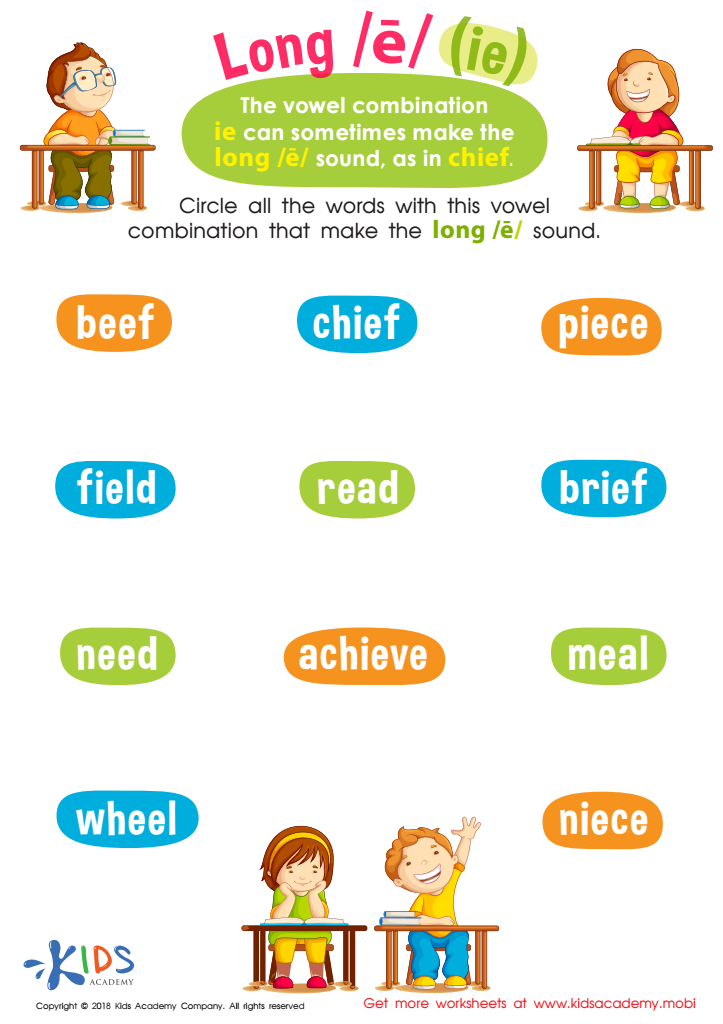

Reading: Long E and IE Worksheet
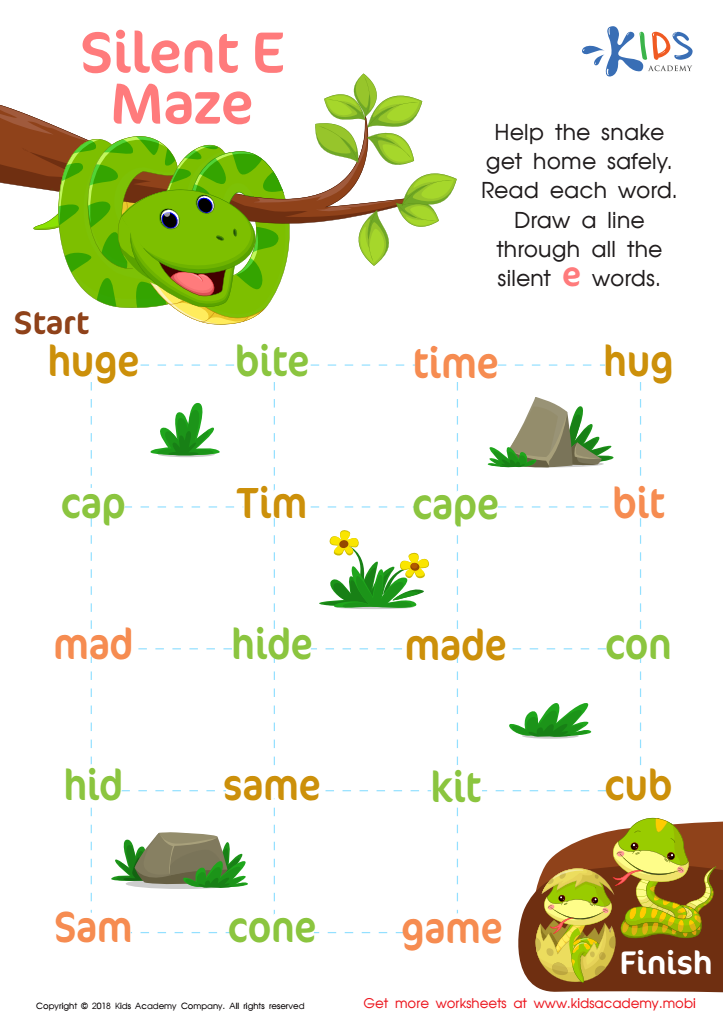

Silent E Maze Worksheet
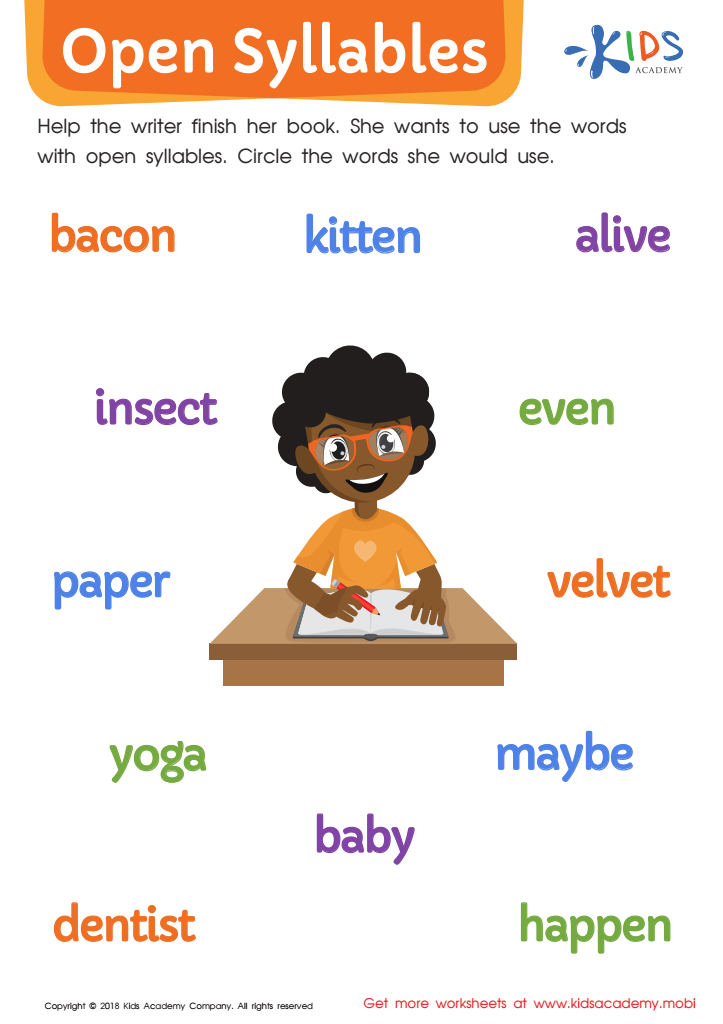

Open Syllables Worksheet


Twin Onset Worksheet
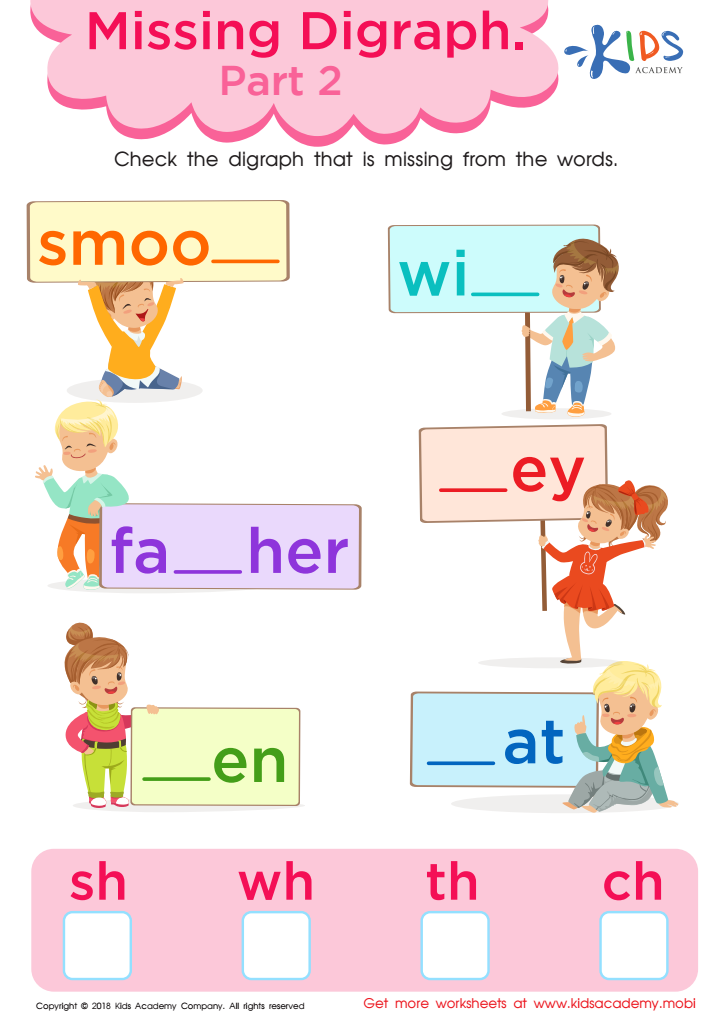

Missing Digraph: Part 2 Worksheet
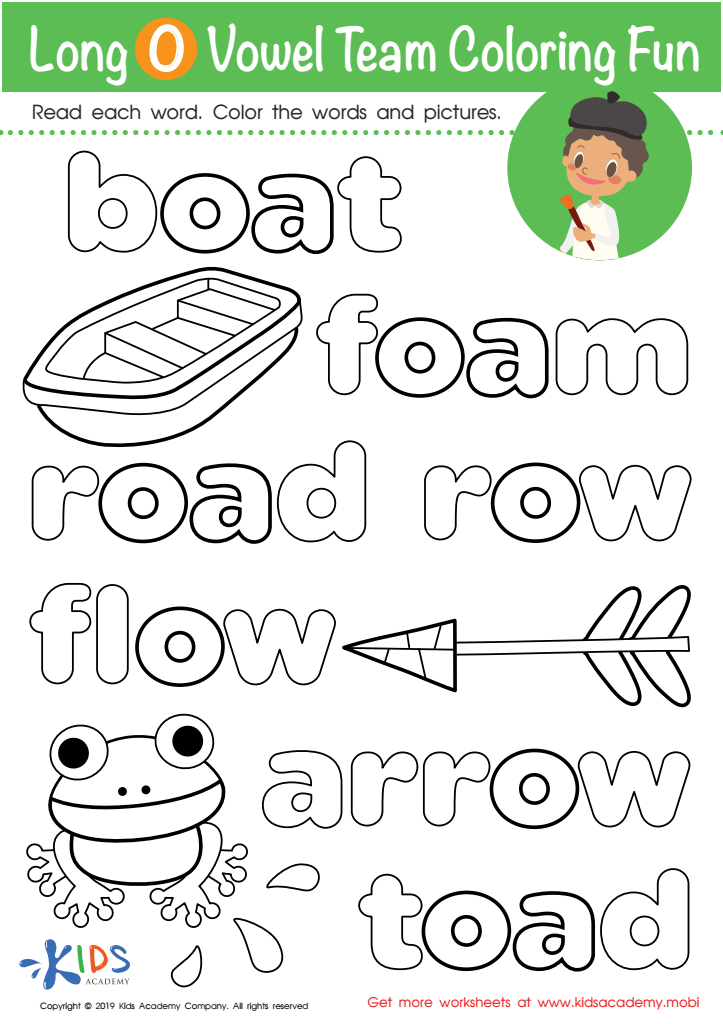

Long O Vowel Team Coloring Worksheet
Spelling improvement through Normal Phonics is crucial for children ages 6-9 as it forms the foundation for successful reading and writing skills. At this age, children are developing their literacy, and phonics instruction helps them understand the relationship between sounds and letters. By grounding these essential skills in phonics, students can decode unfamiliar words, improving their confidence and enjoyment of reading.
Moreover, a strong grasp of spelling enhances vocabulary acquisition, allowing children to express themselves more effectively. Proper spelling also fosters clear communication, a vital skill for academic success and future opportunities. Parents and teachers should recognize that this phase is critical for cognitive development. Young children often make spelling errors, which can lead to self-doubt if not addressed effectively.
Incorporating fun and engaging phonics practices—such as games and interactive activities—can make learning enjoyable while reinforcing concepts. Additionally, monitoring spelling progress can help identify areas needing support, ensuring children don't fall behind. By focusing on spelling improvement through Normal Phonics, caregivers can nurture motivated learners who are equipped with the skills necessary for lifelong learning and effective communication. This foundational effort will serve as a crucial tool for their academic journeys ahead.

 Assign to My Students
Assign to My Students

















